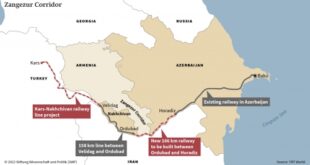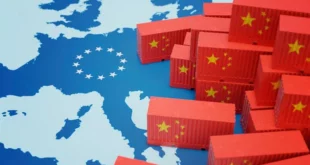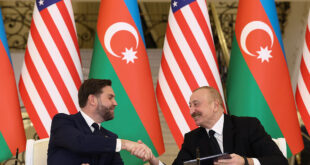 Tens of thousands of Turks have rallied in the northern city of Samsun in the latest of a series of weekly pro-secular demonstrations against the government ahead of elections.
Tens of thousands of Turks have rallied in the northern city of Samsun in the latest of a series of weekly pro-secular demonstrations against the government ahead of elections.
Â
Television pictures showed protesters on Sunday brandishing Turkish flags and portraits of Mustafa Kemal Ataturk, modern Turkey’s secularist founder.
Â
One organiser said that between 20,000 and 30,000 people had gathered, boosted by last week’s electoral agreement between centre-left parties against the ruling Justice and Development (AKP) party for the July 22 poll.
Â
Deniz Baykal, head of the main opposition Republican People’s party (CHP), and Zeki Sezer, his counterpart in the Democratic Left party (DSP), were due to attend Sunday’s demonstration together.
Â
The choice of Samsun as the venue for the latest protest was symbolic.
Â
It was in the Black Sea port city 88 years ago that Ataturk launched a liberation movement against the British, French, Italian and Greek troops occupying Turkey after the defeat of the Ottoman Empire in the first world war.
Â
The rallies began last month after the AKP chose Abdullah Gul, the foreign minister, as its candidate for president.
Â
The AKP failed to hold a parliamentary vote making Gul president, as a boycott by the opposition meant a quorum could not be attained.
Â
The existing president is Ahmet Necdet Sezer.
Â
The turmoil, exacerbated by a warning from the military that it stood ready to defend the secular order, forced Recep Tayyip Erdogan, the prime minister, to bring legislative elections forward to July 22 from November.
Â
Opinion polls, however, suggest that the AKP is still Turkey’s most popular party.
Â
Despite its Islamist roots, the party has pledged commitment to secularism and carried out reforms that secured the opening of membership talks with the EU and stabilised the economy.
Â
Opponents say the party still harbours Islamist ambitions, pointing at AKP policies such as opposition to a ban on the headscarf in universities and public offices, encouragement of religious schools and a failed attempt to restrict alcohol sales.
 Eurasia Press & News
Eurasia Press & News



